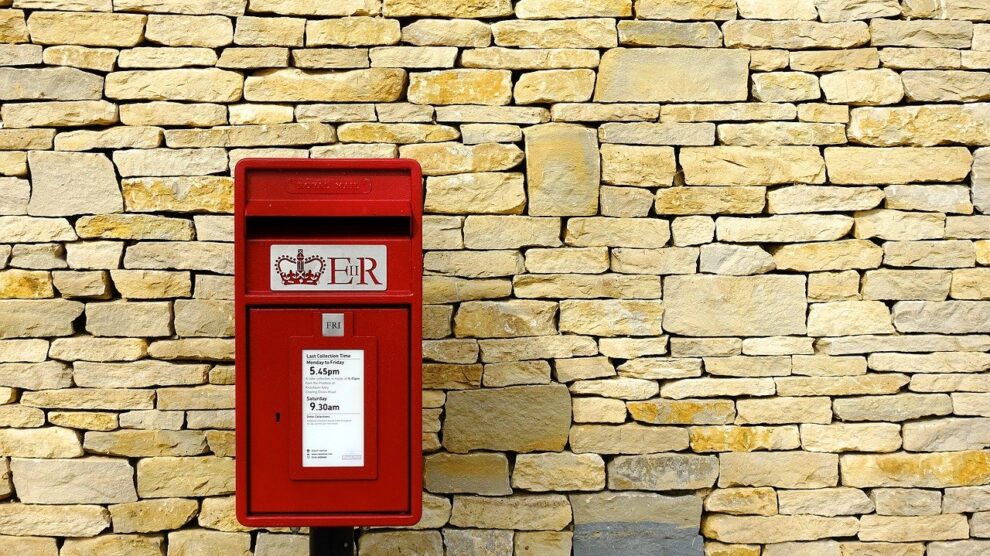At the top of every small business owner’s list of concerns is authenticity. You’ve likely started a business to sell your one-of-a-kind creations…so, make sure your intellectual property is protected. From check fraud to counterfeit products or documentation, be proactive about authenticating your business with the right tools.
Business validation doesn’t have to be overly complicated—it can start with a custom stamp. A custom stamp can help you create unique endorsements, identify branded items and imprint other business information on documents and goods.
Over 40% of small businesses are victims of fraud each year. A simple stamp can help reinforce the authenticity of your brand and potentially reduce the risk of fraud.
Here, you’ll learn:
- The high cost of fraud for small businesses
- How to use stamps to reinforce authenticity
- The differences between custom stamp types
- The best uses for each type of stamp
1. The high cost of fraud for small business
Fraud costs small businesses millions of dollars every year. Companies in the United States lose an average of 5% of their gross revenues due to fraud. As your company grows, the value of fraud protection increases significantly. If you invest just a small amount of time and money on fraud prevention now, you’ll keep your small business safe for years to come.
The most common types of fraud often involve money, checks, billing, or company documents, but losses can extend beyond cash value. It can take a lot of time to complete an audit, deal with charges or personnel matters related to fraud and rebuild your reputation. There are secondary costs as well, like accounting or legal fees.
In short, the effects and financial challenges of fraud (even something as simple as stolen checks) can have a long trail. It takes time and money to clean up, and most small business owners don’t even think about preventative measures until it is too late.
2. How to use stamps to reinforce authenticity
Custom stamps are a common tool. Right now, maybe you just use them to add your address to envelopes or postcards…but stamps can help with authenticating your business. Here are some examples:
- Check deposit endorsement. Use a stamp on the back of checks to denote deposit accounts so that the full amount of each check goes to the correct place.
- Check signature endorsement. Ensure that the same signature goes on each check and looks identical every time. A signature stamp can ensure consistent endorsements for checks or documents. As an additional safeguard, this type of stamp should always be kept under lock and key in a secure location…away from your checkbook.
- Authenticate products or items. Use a stamp to authenticate the items you’re selling. In this case, the stamp should have your business logo or name, a unique serial number, and your contact information. You can stamp the back or inside of physical products to prove authenticity.
- “Seal” confidential items. A stamp across the sealed area of an envelope shows that a confidential document hasn’t been opened or read by someone else. This provides an extra level of security when handling sensitive information.
3. The differences between custom stamp types
When you start looking for custom stamps, you’ll find three primary types:
- Self-inking stamps
- Pre-inking stamps
- Signature stamps
Self-inking stamps are a highly affordable custom stamp option that makes a nice impression. They feature a tiny, built-in ink pad that distributes ink on a rubber stamp. Stamps come with ink pads included, which can be easily (and inexpensively) replaced.
This type of stamp works best for large quantities of impressions and can provide a readable imprint on paper products, envelopes, and stationery. This type of stamp is common for addressing or endorsing documents.
Pre-inking stamps don’t use a rubber “stamp” to print information. They have a die-cut module that allows liquid ink to seep through the impression area. Because of this, they leave a more precise imprint than other types of stamps.
Pre-inking stamps are some of the longest-lasting options, can be refilled and are recommended for logos or more detailed stamp marks or information. This type of stamp is commonly used to verify authenticity.
Signature stamps are specially designed to replicate your handwriting for document signing. Create the stamp by uploading your signature to a stamp maker and make an immediate impression on paper items.
4. The best uses for each type of stamp
Self-inking stamps:
Self-inking stamps are one of the most affordable tools you can add to your business validation kit. These stamps generally work for up to 10,000 uses before the ink pad needs replacing and are great for larger text. This is an ideal stamp type for check endorsements and won’t bleed through the paper.
A self-inking stamp can also provide financial institutions with vital information regarding your account and deposits. Stamp each check as it arrives with deposit endorsement information that prevents it from being cashed or deposited into the wrong account.
Generally, these stamps include three lines of text:
- FOR DEPOSIT ONLY
- Company name
- Bank name or account
The most important consideration for a self-inking stamp is to make sure the sizing lines up. Ensure that the size of the stamp’s imprint area aligns with the size of the endorsement area on the backs of checks. Your best bet is to use a rectangular stamp that’s no more than 2.25″ wide and 1″ tall. Ink color doesn’t matter but should be dark enough to show up on checks that are a color other than white.
Self-inking stamps are a great complement to other small business branding elements. They can be used to address envelopes, as a letterhead for stationery or to add your brand to almost any paper product.
Pre-inking stamps:
Pre-inking stamps are a small business authenticator super tool. These stamps imprint a sharp, crisp image—like your logo—on almost any surface. They can handle small, detailed elements and text with dye that’s designed to last on most surfaces.
In terms of business protection, it’s important to have a sharp and precise mark. So, pre-inking stamps are ideal for authentication or anywhere you need to make an impression with small graphic or text elements. Use them to brand things such as:
- Furniture
- Crafts
- Musical instruments
- Bottles
- Containers
Signature stamps:
A signature stamp can ease the repetitive tasks of signing contracts, letters or paychecks. Just sign once and have your signature turned into a self-inking stamp that can be used on practically anything.
One of the best features of a signature stamp is that it provides a consistent signature every time. If you plan to use a signature stamp, make sure to keep it in a locked to secure location so that only authorized employees have access to it.
Whether you need one type of custom stamp or all three, these affordable tools can help you save time and money…and protect your small business by reinforcing authenticity.





